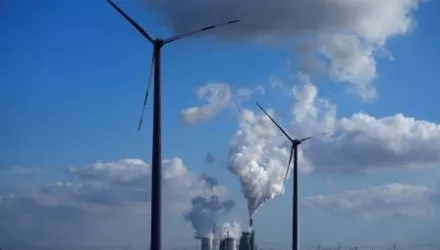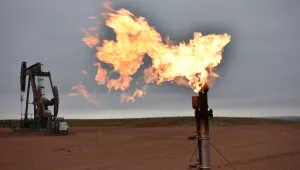Introduction
The Iraqi Kurdistan Region is host to a vast quantity of proven and probable natural gas reserves that, if properly developed, commercialized, and exported, could significantly improve the economic and human condition of Kurdistan, the rest of Iraq, and contribute to the development and security of Turkey and even Europe.
For Iraq in particular, lack of adequate power generation is an existential issue that can be solved by Iraqi natural gas. Electricity shortages throughout Iraq, especially in the summer when air conditioning loads cripple the system, have left citizens with only several hours of electricity, and lack of power during a 2010 summer heat wave resulted in violent riots that forced the Electricity Minister to step down and strained a government grappling with many other crises. The Kurdistan Regional Government (KRG) has improved Kurdistan’s situation dramatically by contracting Dana Gas to produce natural gas for electricity generation (Erbil now enjoys almost around the clock electricity); nevertheless, adequate electricity supply is still lacking in many areas and rapid development of natural gas for power generation is a major priority.
Up until recently, however, Iraq—Kurdistan included—has focused on developing oil, even at the expense of natural gas (for example, by flaring natural gas associated with oil wells in the south). In Kurdistan, this historical neglect is due to two sets of challenges: one of the general disadvantages of natural gas compared to oil, and the other of challenges unique to the Iraq context.
In general, natural gas is a more difficult resource to monetize than oil. Fundamentally, oil is an easier resource to develop, produce, and sell: it is a global commodity that can be sold to the highest bidder worldwide and can be transported from the well by truck. Natural gas, however, is generally restricted to regional markets, contracts to sell it span years, and transporting and storing it requires special handling and compression, making it more capital intensive and operationally expensive. Therefore, monetization of natural gas resources takes longer and until a contract is agreed upon, there is large price and volume uncertainty.
The Iraqi context exacerbates the difficulty of developing and monetizing natural gas. The political divide in the country between the semi-autonomous KRG and the central Baghdad government poses a large obstacle to developing natural gas. Given the constitutional requirement that natural gas revenues be redistributed fairly throughout Iraq, natural gas development, even in Kurdistan, would appear to be in all Iraqis’ interests. Indeed, petroleum revenues overwhelmingly supply the revenues that flow to the KRG and Iraq’s central government. However, the central government views any secession of natural resource control to the KRG—which is the perceived result of allowing the KRG to export its resources—as surrendering part of Iraq’s sovereignty.
Another challenge is that, to generate more revenues, the government relies on the experience and expertise of international oil and gas companies (IOCs) to explore, develop, and produce gas. However, because of the risk involved in doing business in Iraq—especially the security risk that dominates the south, raising all costs of doing business, and the political risk of conflicting natural resource claims between Erbil and Baghdad—companies will not pursue gas development unless a clear and reliable monetization path exists.
One obvious way to offer a greater reward for natural gas development is by creating the option to export it. Exporting natural gas to Turkey and Europe (and, possibly, as LNG to countries further afield) is one of the most attractive monetization paths for natural gas developers. However, the political conflict in Iraq has prevented Kurdistan export option from being realized, frustrating many in Turkey and Europe (particularly the Nabucco Consortium that has been actively seeking the gas volumes that would make a Turkey-to-Austria pipeline economically viable).
In summary, there are many risks and uncertainties involved with natural gas development in Kurdistan; some are general to natural gas and others specific to the Kurdistan context. To unlock the potential of natural gas for Kurdistan, Iraq, and the region, either the risks must be reduced (political in particular) or the potential rewards must be raised.
Read the full paper:
Elliott, Stephen A. and Louis B. Beryl. “Natural Gas Development in Kurdistan: A Financial Assessment.” August 2012



